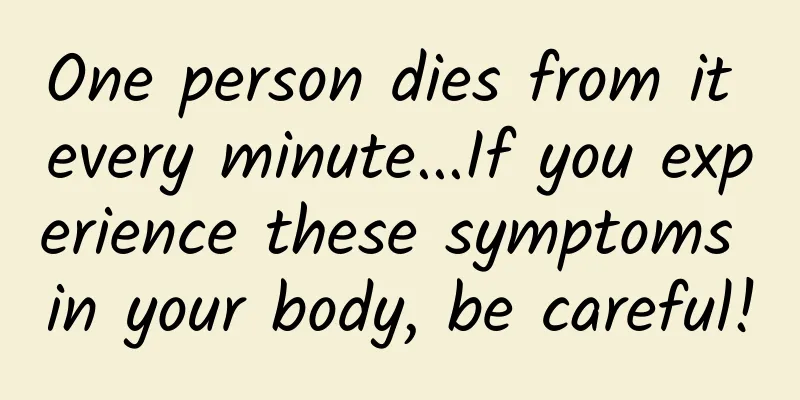After a person is buried, where do the atoms that make up his body go?

|
"It rains heavily during the Qingming Festival, and the travelers on the road are almost heartbroken; I asked where the tavern is, and the shepherd boy pointed to Xinghua Village in the distance." Although I am not good at Chinese and have always had difficulty scoring in reading comprehension, I could still feel the melancholy or low mood during the Qingming Festival when I learned this poem as a child. And when we eventually become the grief of others one day, will the body that has been cremated, buried, or sky-buried still feel these emotions? From the moment we are born, we take in food, water, breathe air, grow, grow up, gain weight, age, and finally are covered with a white cloth. The human body is very complex, including a large amount of water, protein, fat, vitamins, cellulose, etc. During the life stage, the human body always consumes energy to maintain its own vital signs, so that humans have characteristics such as thoughts, emotions, and memories. But when we consume a lot of energy and substances, practice to complete this life, and rest in peace, the human body, a highly sophisticated organic organization, loses its ability to maintain its operation by consuming energy, and is transformed into a body that releases energy and substances to the outside. In this process, nucleic acids, proteins, carbohydrates and other substances that once worked together are gradually decomposed, so that each atom may eventually no longer be connected to its own neighbors, but integrated into a new round of journey. Where did they go? In terms of weight fraction, 99% of the human body is composed of six elements: O, C, H, N, Ca and P, about 0.85% of K, S, Na, Cl and Mg, and the remaining 0.15% of elements are called trace elements, including essential trace elements such as Mn, Fe, Co, Cu, Zn, Se, Mo, and various other elements in the periodic table. Due to the uncertainty of human intake, in fact, except for atoms that can decay rapidly, all elements in the periodic table may exist in the human body. The picture comes from Tuchong.com CHON, carbon, hydrogen, oxygen and nitrogen, are called the four basic organic elements. Maybe it can be pronounced as "stupid"? It may imply that from the perspective of the universe, all life forms seem to be a little stupid. In the human body, most of the H and O elements exist in the form of water molecules, and will naturally return to nature in the form of water, perhaps flowing into rivers, lakes and seas, or perhaps absorbed by plants and then converted into organic matter through photosynthesis. For carbon atoms, although some of the carbon that slips through the net still exists in the form of organic matter, such as being absorbed by plants as nutrients, carbon dioxide may be the destination of most carbon elements. Some of this carbon dioxide may return to the state of organic matter through photosynthesis of trees, green algae, etc. As for the N atoms in CHON, if they are not absorbed by microorganisms or plants at the node where the body turns into spring mud to protect flowers, they are likely to be converted into N2 molecules, becoming an important and relatively inert component in the air, and continue to exist in the atmosphere. For other atoms, such as P, S, Ca, etc., transformation into relatively stable substances may also be their main destination. P will be transformed into phosphates, etc., sulfur will mainly become inorganic salts such as sulfide sulfate, and the same is true for calcium. Therefore, stabilization, or inorganicization, is the fate of most atoms in the human body. The atoms are transformed into their most stable form on Earth, becoming water, carbon dioxide, nitrogen, iron oxide, zinc sulfide, and so on. A very small number may re-enter the living body and become an inconspicuous atom in plants, animals, or even another human body. From a chemical point of view, this fact seems to be a thermodynamically destined outcome, because matter always tends to become their most stable form; and from a perceptual point of view, these atoms that make up the human body, some may have been with this body since infancy, and some may have just been taken in and fixed before death, but after experiencing joys and sorrows and singing and dancing rap, they finally become stable molecules and no longer run around, watching the changes in the world and the vicissitudes of life, which is a kind of companionship for the relatives who are still alive. Cherish every atom that is still in the living body. Ten thousand years is too long, we must seize the day. This article is a work supported by Science Popularization China Starry Sky Project Author: Li Cunpu Reviewer: Tao Ning (Associate Researcher, Institute of Biophysics, Chinese Academy of Sciences) Produced by: China Association for Science and Technology Department of Science Popularization Producer: China Science and Technology Press Co., Ltd., Beijing Zhongke Xinghe Culture Media Co., Ltd. |
<<: Will eating these things often really make you ugly? Beware of these 8 types of food
>>: Countdown to the "Three Tests": The "Three Musts" of Scientific Diet
Recommend
Watermelons wrapped in plastic wrap have too many bacteria, which can cause poisoning? Remember these 4 points to eat watermelons safely!
Author: Zhang Yu, researcher at the Chinese Cente...
Homemade wine tastes great, naturally pure? But I urge you to be careful...
It is the grape harvest season again. Many people...
Regarding Nanjing's high-end tea takeaway studio, I am very satisfied with this one recommended by my friend
Nanjing tea drinking and takeaway private studio ...
The stock market is falling. Are you, a startup, ready for the winter?
[[146861]] As global stock markets tumble, shareh...
"Online Loan Reduction Tutorial" Detailed operation method of charging 30,000 yuan outside
Course Contents: 1. Debt mentality management and...
How to discover user growth points through growth experiments?
Now that the traffic dividend has disappeared, re...
After running information flow ads in Moments three times, this is my bitter experience
I am a channel promoter in the wedding photograph...
Chinese cartoons look like national treasures? There are so many "cultural relics" hidden in "Nezha 2"...
The domestic animated film "Nezha: The Devil...
Can I become a great programmer if I learn programming halfway?
Let’s not talk about chicken soup, let’s talk abo...
What is the difference between a good operator and an ordinary junior operator?
My name is Lao Huang. I am an operator. In fact, ...
How to increase the number of public account readers? Just read this article
Can you tell the difference between the final tit...
From the Hooked user incentive model, a comprehensive analysis of why "Honor of Kings" makes you addicted?
Why is " Honor of Kings " so popular? W...
Papaya breast enlargement, massage to make breast bigger... These breast enlargement tips are not reliable
This article was reviewed by Yu Qi, chief physici...
High temperature can kill bacteria, so can spoiled food still be eaten after boiling?
Author: Mei Xue, Chief Physician of the Emergency...
A sore throat may be caused by acute epiglottitis, and an instant "throat blockage" is not an exaggeration!
The weather has been dry recently, and many peopl...









